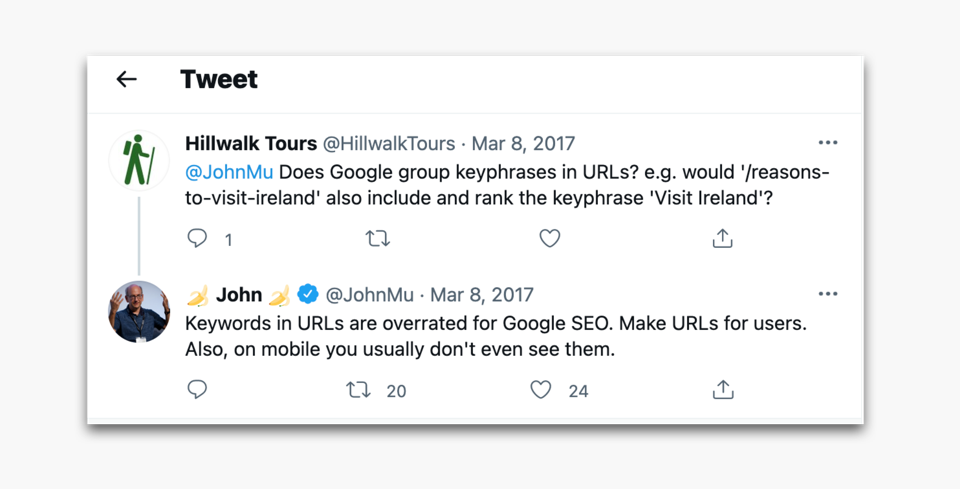We can’t send you updates from Justia Onward without your email.
Unsubscribe at any time.
If you want to increase your law firm’s online visibility, you are likely interested in search engine optimization (SEO). Check out this post to learn more about the answers to some common SEO questions we encounter.
For many, the legal profession is not synonymous with technology. We haven’t quite hit the 10-year mark since the ABA added technology to the model rule on competence, and the legal profession is often notoriously slow to adapt to change.
While we all appreciated the heart-warming cat lawyer Zoom mishap brought to us courtesy of the COVID-19 pandemic and were equal parts amused/concerned when a toilet flushed during United States Supreme Court oral arguments, the fact remains that the changing technological landscape impacts every aspect of your law firm (especially in recent years), from your daily practice to finances and even legal marketing.
Have no fear. We are here to help – at least with the legal marketing part. Welcome to this edition of Justia Q&A, where we help lawyers like you stay up to speed on digital marketing. Previously, we shared the answers to five common questions about search and SEO. Keep reading to discover five more common questions we hear about search and SEO and get our answers.
1. Are Third-Party Metrics Google Ranking Factors?

Domain strength measurement tools such as SEMRush’s Authority Score, Ahrefs’ Domain Rating, Majestic’s Trust Flow and Citation Flow, and Moz’s Domain Authority, are popular within the SEO world. While they may be correlated with better Google rankings, these third-party metrics are not Google ranking factors. Instead, these tools tend to measure the general number and strength of links into a website.
Moz itself indicated that its Domain Authority tool is not a Google ranking factor and doesn’t impact the results searchers see on the search engine results page (SERP). Likewise, Trust Flow and other similar tools are not a ranking factor. Again, while these tools may offer insight into data that is indeed considered by the Google algorithm, these third-party metrics are not associated with Google and, thus, are not in and of themselves part of the Google ranking factors. Moreover, not even Google Analytics itself is a ranking factor.
Google is as much focused on the content on the site linking to a domain, as the website’s domain strength itself. For example, a link from a website focused on wild buffalo, with a high third party domain strength, will be of much less value to your law firm than a moderate strength website focused on law, or even a weak website focused on your practice area. This is why your law firm and lawyers should always get listed in free lawyer directories, even the ones with weaker domains.
Watch this video to learn more about lawyer directories.
For more on using these third-party tools to monitor, assess, and adjust your legal marketing strategy, check out our post on popular SEO tools.
2. Will it help my SEO if I buy new domain names that include keywords and redirect them to my website?
We frequently hear from lawyers who have purchased or have been advised to purchase extra domain names based on the keywords they include. Then, they would redirect these various domain names to their main website, all in the name of search engine optimization (SEO).
Purchasing a New Domain: Buying a new domain will not lead to much value at all. With any new domain, you will get some low-quality links from sites that list domains, but these links are close to useless, as Google does not consider these sites editorially significant (after all, they are listing all domains), and these websites are certainly not related to law. While it is possible there is some de minimis value to having these links, it is so small that it certainly will not cover the yearly cost of the domain itself.
That said, if you want to buy a new domain for marketing purposes, including other online or offline advertising, to catch common misspellings of your firm name, or some other personal or business reason, then by all means buy the domain. However, if you are buying the new domain only for SEO links, it is not worth it.
Keywords in the URL: The debate about whether keywords in URLs improve your SEO success has been raging for quite some time. In 2015 and 2016, some suggestions indicated that URL keywords were a ranking factor, albeit not one with much weight. But in 2017, Google’s John Mueller went so far as to say keywords in URLs are overrated for SEO.

Notably, being overrated does not necessarily mean irrelevant, so it seems there are at least minor benefits. However, five years might as well be a century in the rapidly evolving SEO world, so the debate has continued.
Some argue that even if one domain with a certain keyword is helpful, redirecting additional domains is not because Google only values one domain name per web property (website or blog) in their ranking algorithm. Others are invested in the possible impact keywords may have on their SEO strategy, even if minuscule or secondary.
While SEO experts continue to debate the issue, you can check out this article from Search Engine Journal to learn more about the possible impacts of keywords on website rankings and get some URL best practices.
Our recommendation? Use a keyword in your website URL if it makes sense for your firm. However, do not stress about it too much. Also, don’t buy extra domain names for your firm unless: 1) you plan to publish a website, blog, or landing page at that domain, 2) you have a commonly misspelled firm name and want to make sure your clients end up in the right spot, 3) you want to use the domain for external marketing purposes, or 4) you don’t want your competition to buy that domain name. Also, do not purchase an existing website unless merging firms, or reusing the content that exists on it for your own website.
3. Should I buy a used domain for SEO value?

There are two possible situations presented when purchasing an existing domain: (1) Purchasing an existing domain that does not have content or points to a domain hosting page, and (2) purchasing a domain that has a functioning website.
If you are purchasing an existing domain that does not have content or is on a domain hosting page, then it is just like purchasing a new domain but with some added risk that the domain may have been punished by Google. However, if the domain you purchase includes an existing website, then it might help your SEO – although Google discourages this as a link-building technique. That said, combining two websites also occurs when two firms are merging and, therefore, are legitimately merging their websites.
First, when discussing the potential benefit, we assume you are buying a law-related website. It will not help you to purchase a non-legal website and redirect that to your existing website. Second, you need to determine whether there are law-related links to the website, realizing that many of the directory links will be removed or changed when a law firm no longer exists or the attorneys are not at the firm to which the old website is being redirected. If there are no law-related links to the website, then there is no need to purchase the website and domain for SEO value. There might be other marketing reasons your firm wants the domain, but SEO will not be one of them.
As mentioned above, Google does not want you to purchase a website to get links. On the other hand, if two law firms are merging, then redirecting one of the sites to the merged firm site is fine. Google really cannot tell when a firm is merging and when a law firm bought a website for its links. Although sometimes it is obvious when a website is bought for links, such as unrelated practice areas that lead to few individual pages being redirected.
Nonetheless, we will consider the legitimate case of when two law firms are merging and also want to merge their websites. In this situation, we have a few recommendations for merging the sites. For the site that is being merged over, remove the pages that are not being moved or that do not have a corresponding page on the law firm’s website, before you redirect the website domain. Once you have removed the pages, allow Google to reindex the site and keep it up for one month. Then, redirect the website of the merged domain to the final website and redirect each page to its new corresponding page.
The sites should be related to each other so that most of the pages can be redirected to the final website. These sites should not be in totally different practice areas. Ideally, the merged website will be bringing in some pages so there is a 1-1 match of the content. There is no need to be worried about duplicate content on a minority of pages for the month that you have both sites.
If there are numerous pages on the site to be merged (over 100) or the vast majority of the pages from the site to be merged to not match with the merged website, you should not remove them all at once. Instead, you will need to slowly remove these pages so that Google does not reevaluate the merged website.
It seems that when law firms purchase a website for a domain’s links, they frequently redirect all of the pages to the website homepage. That will look exactly like what it is to Google: a domain purchase for links. In this case, the links will be discounted. Should you not follow our recommendations to first remove pages from the to-be-merged website that do not have a match to the final website, at a minimum do not redirect pages without a match to your final website homepage. If there are any pages you did not remove that are a sub-practice area page (for example, larceny defense), you could redirect them to the parent category page (criminal law). However, even this should be done sparingly. If you are dealing with a lot of lingering pages, it is better to just provide a 410 response on the final merged website.
Understand that many of the links from the merged website will come from directories, where your website likely already has links. Getting additional links from the same directories does not provide much additional value.
Also, remember that Google is a domain registrar and has access to all of the real identities of individuals registering domains, even with domain privacy turned on. Seeing a change of ownership combined with a drastic change in the website content can signal that the domain is being purchased just for links.
Circling back to the original question, can purchasing a used domain with content help your SEO? The short answer is it can, but only if the change is done systematically and the redirects are done correctly. But this likely will not help your SEO as much as you may think it will, as most law firms have links from the same sets of websites and getting more links from that same group of sites is not super valuable.
Moreover, it is always important to remember that Google does not want you to purchase links, and using a roundabout method of doing so could be flagged by your competitors, ultimately leading to the links being discounted. We have even seen one firm that purchased over twenty older websites and redirected those domains to their website. Needless to say, this tactic was easily detected and the firm is not ranking very well.
As a final note, remember that last year one Google representative compared selling used domain names for SEO value to “selling a car based on the topped-up tank of gas.” Google’s way of saying this tactic is probably not worth the purchase price.
4. My client said they left me a nice review on Google, but I don’t see it. Why?

This could be for various reasons, but frequently is the result of the Google reviews process. When new reviews are submitted through Google, they are often not published right away. Instead, it is not uncommon for both the review and the reviewer to undergo a brief investigation or review process of their own before Google shares the feedback.
Sometimes this is due to someone else flagging the review as spam or fake, but other times this is part of an automatic process designed to detect prohibited content. Unfortunately, if your client’s glowing review is flagged for additional investigation, this is outside of your control.
If a review is flagged for Google to take an additional look, it will not appear on your Google Business Profile (formerly Google My Business) or in the search results yet. If Google determines that the review does not violate its policies, then it will become visible. However, this whole process often takes several weeks.
Also, it is important to remember that Google is imperfect. Sometimes legitimate reviews may get flagged for unnecessary investigation, while fake or invalid ones make it through. Sometimes even legitimate reviews are inaccurately deemed to violate Google’s policies and are removed. To better understand this process, check out the Prohibited and Restricted Content policy.
Google is more likely to flag reviews that are:
- From brand new Google accounts,
- From Google accounts that have little activity outside of writing reviews,
- From accounts that write reviews for services in numerous locations,
- From accounts writing reviews for multiple law firms,
- Written from outside of the country where a business is located, or
- Contain very short content with lots of keywords or marketing language.
Many obviously fake reviews are flagged by competitors as well. If you want your reviews to appear on your profile, you want to ensure you are receiving legitimate reviews and hope your reviewers are using an older Google account while taking the time to write a longer review that actually discusses your services and does not overly use keywords.
5. Do I Need to Geotag Photos on Google Business Profile?

Many people believe geotagging Google Business Profile photos is influential in local marketing. However, case study data has shown that this is ineffective. Because Google does not look at the photo details from a code level, geotagging is unnecessary. Instead, Google identifies and gathers the information attached to uploaded Google Business Profile photos from the image itself and business listing.
Bonus: Can SEO Consultants Guarantee That I Will Be on the First Page of Google?

No, they cannot. Google itself is the only company that controls the results that show up in its search results. Even if a consultant offers a money-back guarantee in which they will not charge you if you do not achieve certain rankings, they cannot guarantee you will reach a specific position in search results.
While methodologies may vary, consultants can promise that they will work diligently to help you reach your goals and improve your SEO and search visibility. Our team at Justia carefully monitors the data to spot changes in the Google algorithm and implement best practices to optimize our clients’ websites, blogs, and Google Business Profile for enhanced visibility under any circumstance.
However, nobody can guarantee you a first-page ranking or assure you of a certain Google placement. That is a huge red flag in the SEO world. In fact, Google is clear on this point. They advise to “Beware of SEOs that claim to guarantee rankings, allege a ‘special relationship’ with Google, or advertise a ‘priority submit’” as there is no such thing. If someone tells you that they can guarantee these results, they are lying to you and doing your law firm a disservice.
Final Thoughts: Why Do You Care?
SEO is crucial to getting the most benefit from your law firm’s web properties. With a strong SEO strategy, you can increase your law firm’s online visibility and reach new clients. However, you do not want to waste your energy on ineffective efforts in the SEO space. By learning more about common SEO questions, you can avoid making common SEO mistakes.